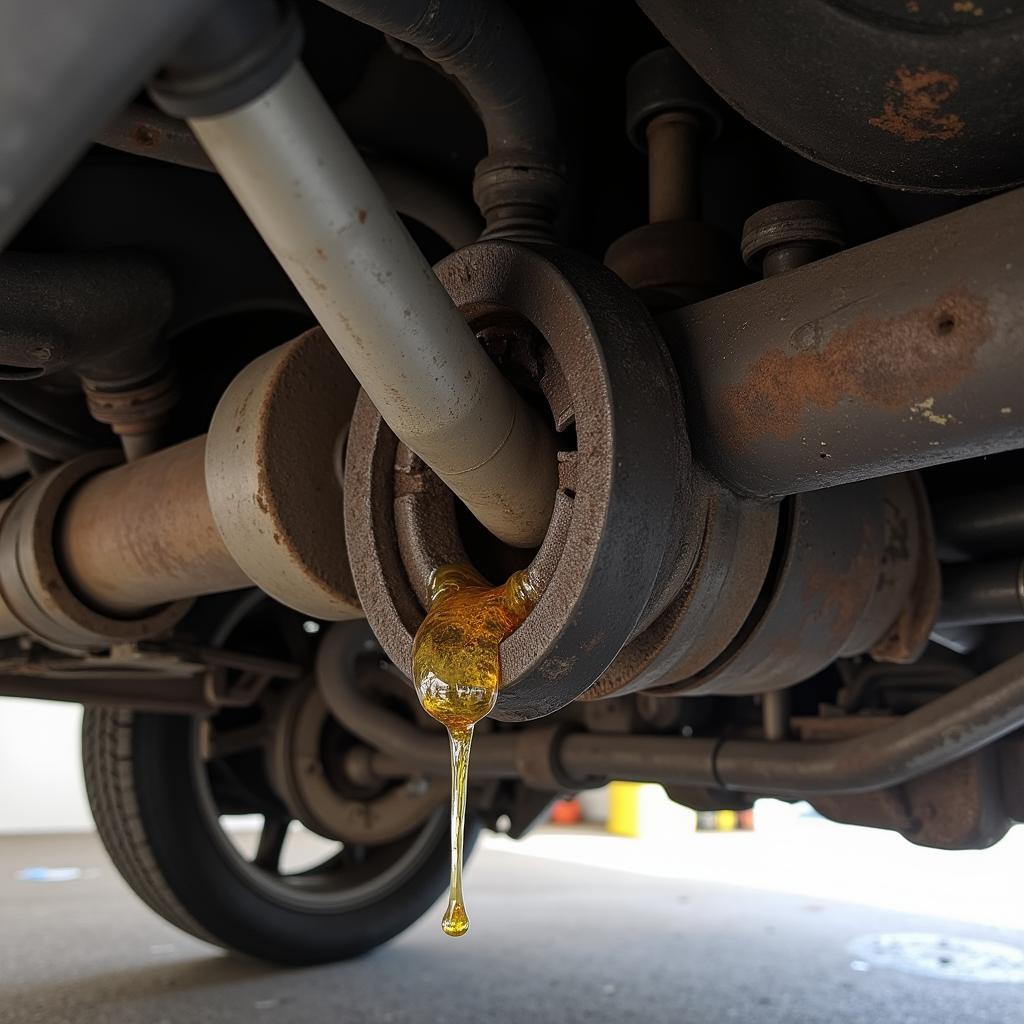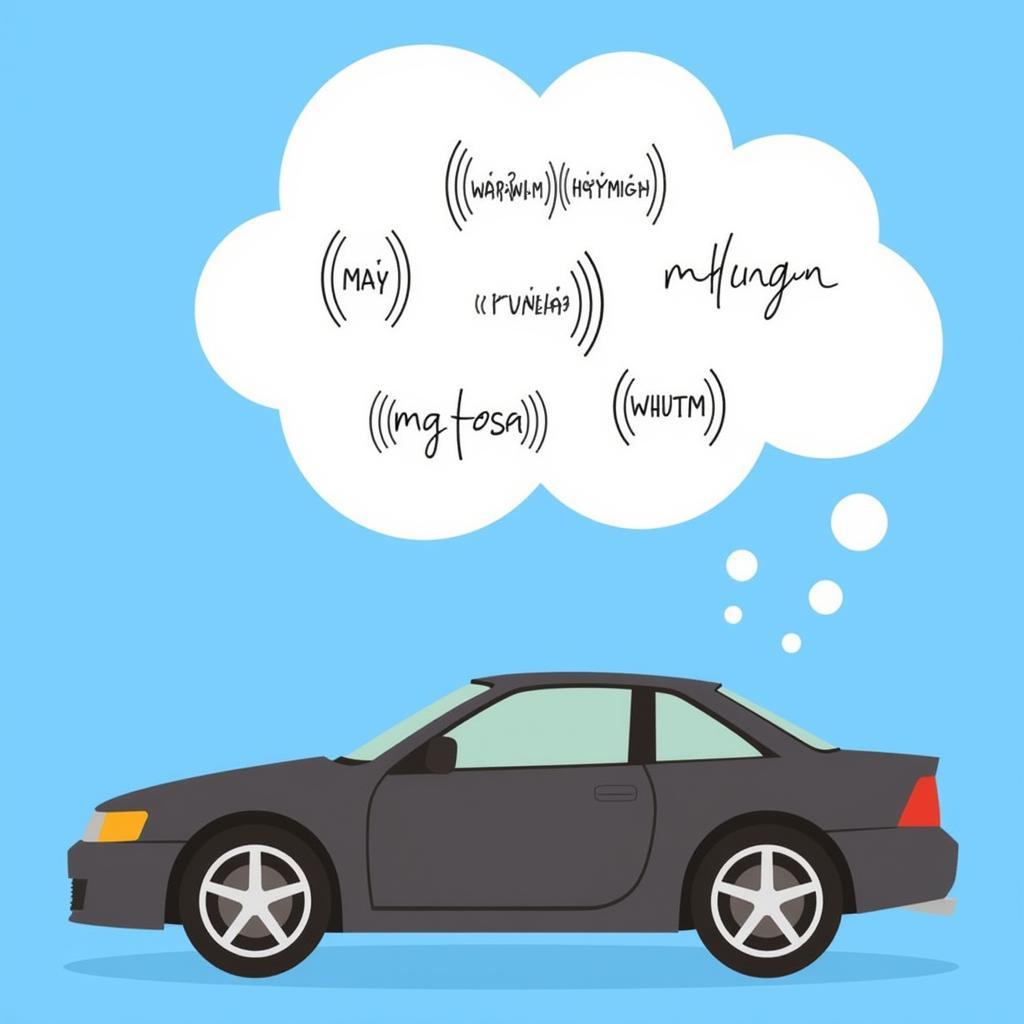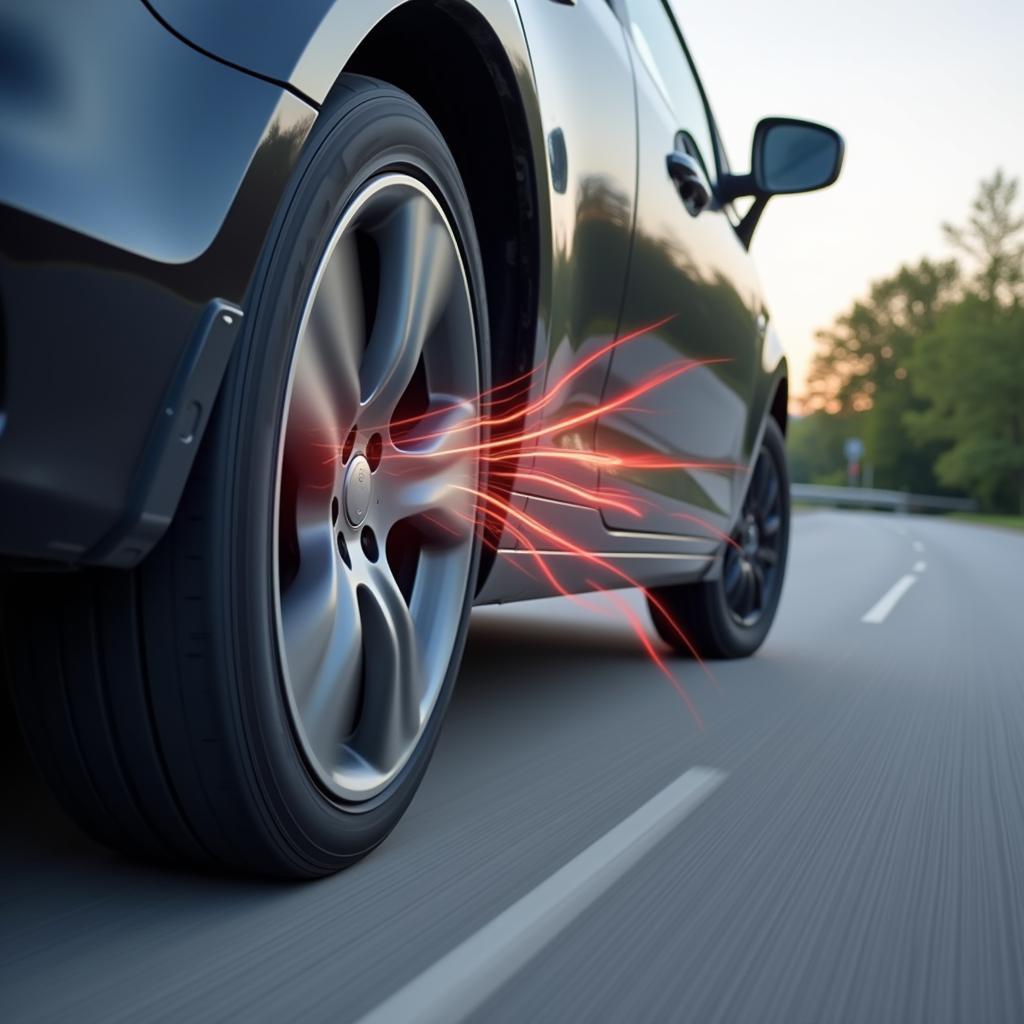Experiencing car trouble after an accident is unfortunately common. One crucial component that can be affected is your car’s differential. Damage to this system, which allows your wheels to rotate at different speeds while turning, can manifest as unusual noises, difficulty steering, or even complete immobility. Understanding the potential issues and knowing how to address them can save you time, money, and frustration.
Common Car Differential Problems After an Accident
A car accident, even a minor one, can jolt the differential system, leading to a variety of problems. Here are some of the most common issues:
## Fluid Leaks
 Car Differential Fluid Leak
Car Differential Fluid Leak
Impact from an accident can cause cracks or damage the seals in your differential housing, leading to fluid leaks. Differential fluid is essential for lubrication and cooling. A leak can lead to overheating, increased wear and tear, and ultimately, differential failure.
How to Identify: Look for oily patches under your car, particularly near the rear axle (for rear-wheel drive vehicles) or front axle (for front-wheel drive vehicles). You might also notice a burning smell, especially after driving.
## Unusual Noises
 Car Differential Noise
Car Differential Noise
A damaged differential can produce a range of unusual noises. Grinding sounds might indicate damaged gears, while whining or howling noises, especially during turns, could point to worn-out bearings or low differential fluid.
How to Identify: Pay close attention to any new noises coming from your car, particularly when accelerating, decelerating, or turning.
## Vibration
 Car Differential Vibration
Car Differential Vibration
Vibrations, especially those that worsen with acceleration or at certain speeds, can be a sign of a bent axle, damaged gears, or worn-out bearings within the differential.
How to Identify: Feel for unusual vibrations in the steering wheel, floorboard, or seat, particularly as you increase speed.
## Difficulty Steering
A damaged differential can make it difficult to steer your car, especially during turns. This happens because the differential is responsible for allowing the wheels to rotate at different speeds, which is essential for smooth cornering.
How to Identify: Notice if your car feels stiff or unresponsive when you try to turn, or if you experience a “binding” sensation in the steering wheel.
What to Do After an Accident
If you suspect your car’s differential is damaged after an accident, take these steps:
- Safety First: Move your car to a safe location away from traffic if possible. If you can’t move your car, turn on your hazard lights and contact a tow truck.
- Inspect Your Car: Carefully check for visible signs of damage, like fluid leaks, dents, or broken parts around the axles and undercarriage.
- Contact a Mechanic: Don’t attempt to drive your car if you suspect differential damage. Contact a qualified mechanic specializing in differentials to diagnose and repair the problem.
Expert Insights from John Miller, Automotive Engineer
“Many car owners underestimate the importance of having their differentials checked after an accident,” says John Miller, an experienced automotive engineer. “Even seemingly minor collisions can cause hidden damage that might not be immediately apparent. Early detection is key to preventing costly repairs down the line.”
He adds, “When looking for a mechanic to inspect your differential, choose one who has experience with your car’s make and model. They’ll have a better understanding of the specific design and common issues.”
Conclusion
Car differential problems after an accident can range from minor inconveniences to serious safety hazards. Understanding the signs of damage and taking prompt action can save you from costly repairs and ensure your safety on the road.
If you’re experiencing any of the symptoms discussed above, don’t hesitate to contact the experts at AutoTipPro. We have a team of experienced technicians who can diagnose and repair your car’s differential, getting you back on the road safely. Call us today at +1 (641) 206-8880 or visit our office located at 500 N St Mary’s St, San Antonio, TX 78205, United States.
FAQs
1. How much does it cost to repair a car differential?
The cost of repair varies depending on the extent of the damage, the type of car, and labor costs. A minor repair, like replacing a seal, could cost a few hundred dollars, while a complete differential replacement can run into thousands.
2. Can I drive my car with a damaged differential?
It’s highly discouraged to drive with a damaged differential. Doing so can worsen the damage, leading to more expensive repairs and potentially dangerous driving conditions.
3. How often should I service my car’s differential?
Refer to your car’s owner’s manual for specific service intervals. Generally, it’s recommended to have your differential fluid checked and changed every 30,000 to 50,000 miles.
4. What is the difference between a front and rear differential?
A front differential is found on front-wheel drive vehicles and allows the front wheels to rotate at different speeds during turns. A rear differential is found on rear-wheel drive vehicles and performs the same function for the rear wheels.
5. How do I know if my differential fluid needs changing?
Signs that your differential fluid might need changing include a burning smell, grinding noises, or difficulty steering. It’s best to have a mechanic check the fluid regularly.





Leave a Reply